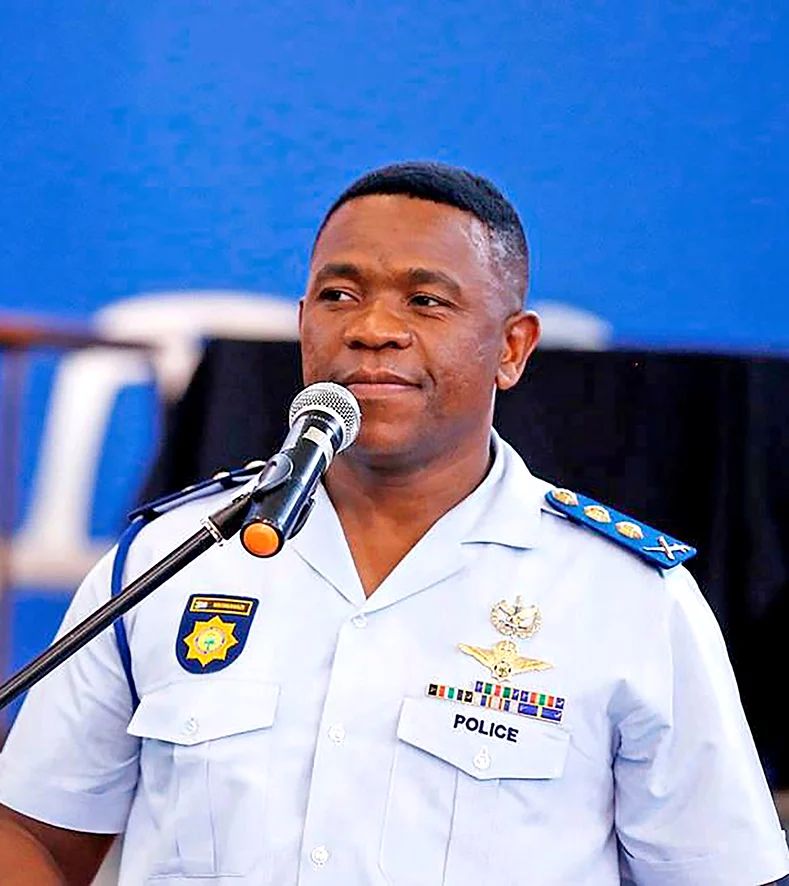
Parliament’s Ad Hoc Committee Ramps Up Action with Advocate Norman Arendse SC Leading Critical Probe into National Security Allegations Image Credit: Sunday World
(The Post News) – Parliament’s Investigation into National Security Threats has entered a critical phase with the appointment of Advocate Norman Arendse SC to lead evidence before the ad hoc committee tasked with investigating corruption allegations in the criminal justice system. The committee was established following a dramatic revelation by KwaZulu-Natal Provincial Commissioner, Nhlanhla Mkhwanazi, during a July media conference where he alleged serious threats to South Africa’s national security and widespread corruption among senior officials.
This probe is seen as a decisive step in restoring public confidence and addressing the alleged misconduct that threatens the rule of law. The National Assembly Report Deadline has been set for October 31, placing the committee under significant pressure to deliver its findings swiftly and comprehensively.
Advocate Norman Arendse SC Takes the Lead in Parliament’s Investigation
At the heart of Parliament’s Investigation into National Security Threats is the highly respected legal figure, Advocate Norman Arendse SC. Parliamentary legal advisor Thuli Ganyaza–Twalo confirmed that Arendse will lead evidence and be supported by Advocate Maria Makhaoetsi and Advocate Lerato Zikalala. This legal trio is expected to ensure that testimonies and evidence presented are handled with the highest level of professionalism and integrity.
Arendse’s appointment has been widely welcomed as a sign that Parliament is serious about uncovering the truth. Known for his meticulous approach, Arendse’s leadership is expected to bring credibility and clarity to the hearings, which could have far-reaching implications for South Africa’s security and governance structures.
High-Profile Figures Expected to Testify
Committee chairperson Molapi Lekganyane announced that Provincial Commissioner Nhlanhla Mkhwanazi is likely to appear before the committee from September 25. Invitations have been sent to several senior figures, including National Police Commissioner Fannie Masemola, suspended Police Minister Senzo Mchunu, Deputy National Police Commissioner Shadrack Sibiya, Acting Police Minister Fairoz Cachalia, and his deputy ministers.
According to Lekganyane, some of these individuals have requested consultations with senior counsel before appearing. Mkhwanazi, whose explosive allegations triggered the formation of the committee, has already confirmed his commitments to the inquiry.
Hearing Dates and Deadlines for National Assembly Report
The first hearing of Parliament’s Investigation into National Security Threats is set for September 16, with September 22 as a backup date. The committee is under strict timelines, as it must prepare and submit its report to the National Assembly by October 31.
Lekganyane outlined the timeline: “The plan we suggest is by 15 October; the tech team must start preparing the report for the National Assembly for the 31 October. In the event that we won’t make that deadline, we can make an application to the office of the speaker to request an extension.”
This timeline demonstrates Parliament’s determination to handle the matter with urgency, ensuring that the findings and recommendations are presented before the deadline.
Parliament’s Investigation into National Security Threats is more than just a procedural exercise—it is a test of South Africa’s ability to address allegations of corruption within its criminal justice system. The outcome could influence future policy decisions, the stability of key security institutions, and the public’s trust in government oversight mechanisms.
The involvement of Advocate Norman Arendse SC signals that the process will be robust and fair, while the looming National Assembly Report Deadline adds a sense of urgency that will keep South Africans closely watching developments.
Anticipated Impact of the Final Report
The final report, once submitted to the National Assembly, will likely contain critical recommendations for reform. These could include:
- Strengthening accountability in the criminal justice system
- Addressing systemic corruption and misconduct
- Implementing measures to safeguard national security
- Holding implicated officials accountable through disciplinary or legal action
Such outcomes could lead to a stronger, more transparent security sector, benefiting the entire country.
Public participation and media coverage will play an essential role in maintaining transparency throughout Parliament’s Investigation into National Security Threats. Journalists and civil society organizations are expected to scrutinize every stage of the process, ensuring that findings are not suppressed and that corrective action follows the release of the report.
With Advocate Norman Arendse SC at the helm, Parliament’s Investigation into National Security Threats represents a significant opportunity to confront corruption and threats to the nation’s stability head-on. The committee’s tight schedule and the National Assembly Report Deadline underscore the urgency of the process, while the presence of high-profile witnesses promises explosive revelations.
South Africans will be watching closely as Parliament works toward delivering a comprehensive report that could shape the future of the country’s security and governance.



